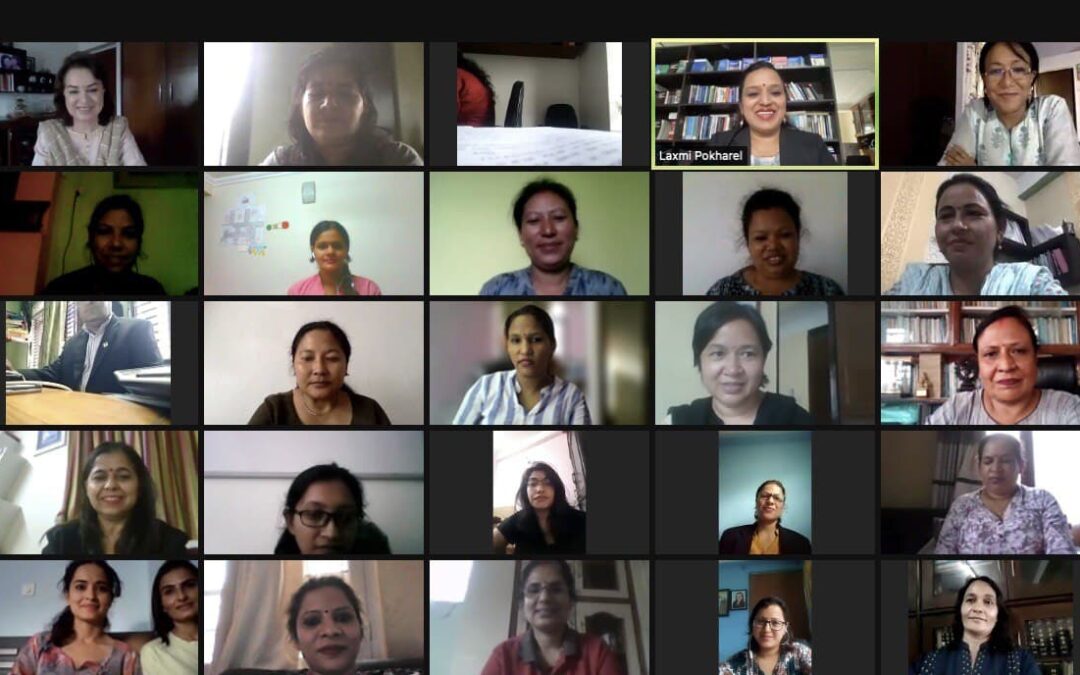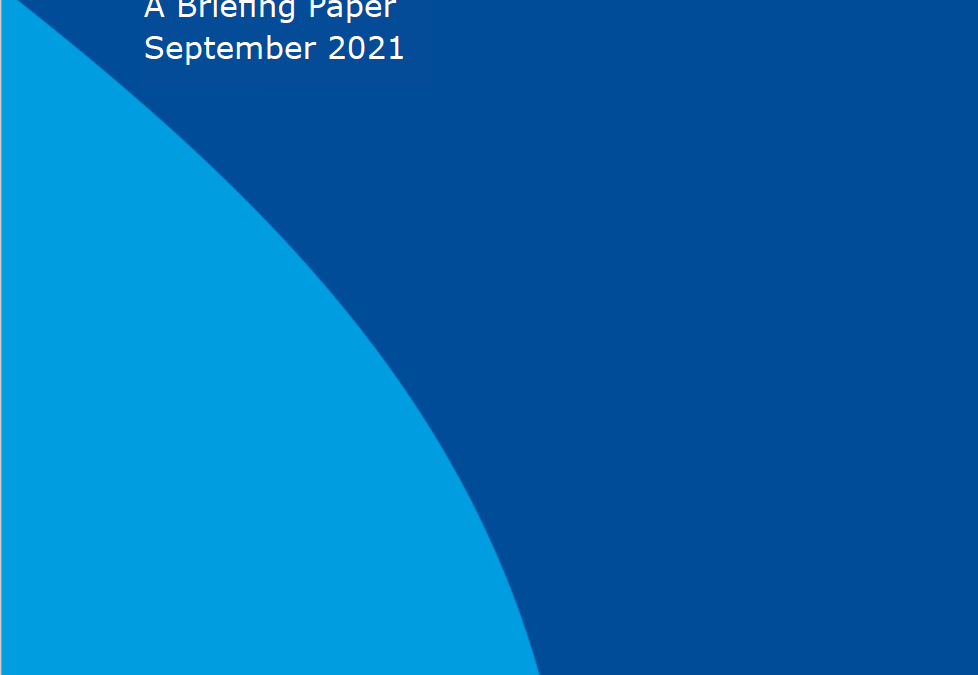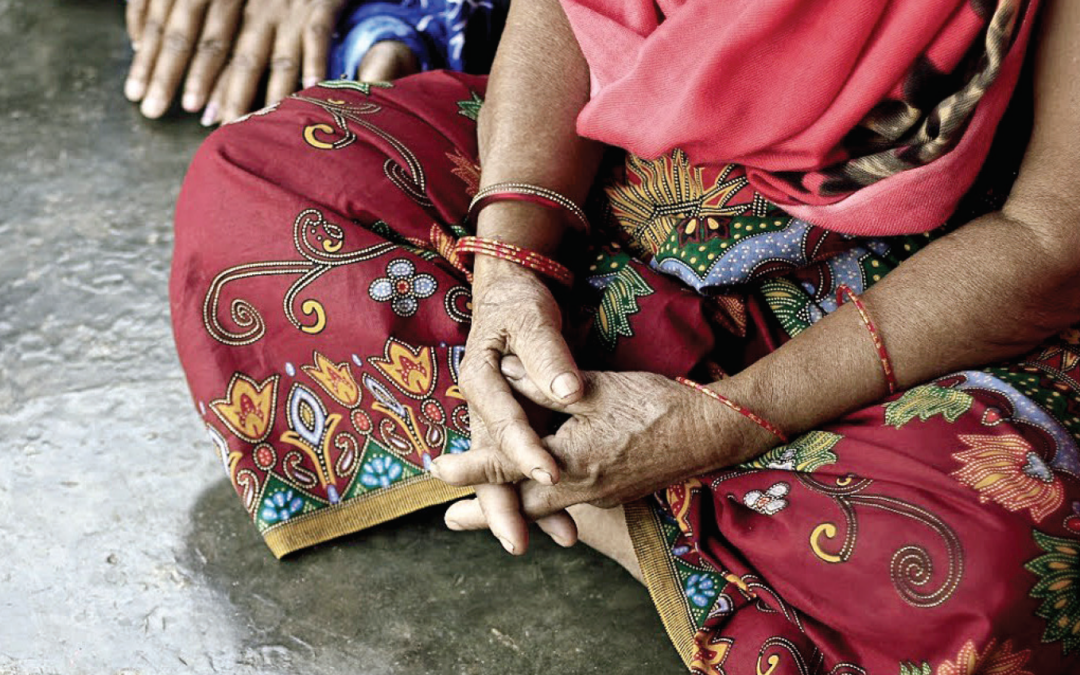
Jun 21, 2021 | Advocacy, News
Victims of sexual and gender-based violence during Nepal’s 10-year-long civil war still face major obstacles to justice, concluded the participants of a virtual consultation on 19 June 2021, on the occasion of the International Day for the Elimination of Sexual Violence in conflict.
The consultation was organized by the International Commission of Jurists (ICJ), in collaboration with the Conflict Victim Women National Network (CVWN), to address “Enhancing Access to Justice for Survivors of Conflict-Related Sexual Violence”. The Nepali version of ICJ Briefing Paper on “Nepal: Transitional Justice Mechanisms with Gender Perspective” was also launched as part of the consultation.
The ICJ consultation with stakeholders highlighted Nepal’s obligation under international law to ensure right to an effective remedy to the victims of sexual and gender-based violence of Nepal’s decade-long armed conflict, which came to a close with a peace accord in 2006.
Around 80 participants, including human rights defenders and conflict victims from different parts of the country attended the consultation. The participants expressed particular concern at lack of attention to gender issues in the context of Nepal’s transitional justice process since its very beginning, and urged that gender considerations be mainstreamed in the transitional justice process.
Ms. Shrijana Shrestha, Chairperson of the CVWN, underscored the lack of government data on victims of conflict-related sexual violence, and denounced the hurdles victims face in seeking justice, due to social and cultural taboos, lack of a support system, and the current statute of limitation to register complaints of sexual violence.
Ms. Mandira Sharma, ICJ Senior Legal Adviser, highlighted that, as a party to various international human rights instruments, Nepal has an obligation to ensure victims’ right to an effective remedy. Further, she expressed concern about the lack of political will since the beginning of the peace process to address the needs of women victims, in particular of victims of conflict-related sexual violence. She emphasized the need to amend the Truth and Reconciliation (TRC) Act in consultation with victims of the armed conflict.
Similarly, Dr. Susan Risal, human rights activists, emphasized the need to develop strong strategies to deal with conflict-related sexual violence in Nepal, taking into consideration the best practices of different countries.
Ms. Laxmi Pokharel, ICJ Legal Adviser, pointed out that the ICJ Briefing paper (“Nepal: Transitional Justice Mechanisms with Gender Perspective”) has analyzed the TRC legislation comprehensively, and can therefore be of use as a powerful advocacy tool for legal reform. She summarized the main findings of the briefing paper and its recommendations, including:
- Amend the TRC Act, through consultative and participatory process, in line with the Supreme Court’s order and Nepal’s international obligations;
- Ensure the participation of women in both Commissions (i.e., the Truth and Reconciliation Commission and the Commission on Investigation of Disappeared Person) at all levels of staffing and in the appointment of Commissioners with a view to ultimately achieving gender parity;
- Provide gender-sensitive training to the Commissioners and staff of the Commissions in order to enhance their ability to address gender issues in their operation;
- Amend the Criminal Code to remove the statutory limitation for filing complaints of rape and other instances of sexual violence;
- Ensure that amnesties and mediation will not be granted to perpetrators of gross human rights violations, including rape and other forms of sexual violence.
During the discussions, the participants highlighted the following major concerns:
- Despite more than six years of its establishment, the Truth and Reconciliation Commission (TRC) and the Commission on Investigation of Disappeared Person (CIDP) have failed to ensure victims’ right to truth, justice, reparation and guarantee of non-repetition;
- There is an urgent need to identify victims of conflict-related sexual violence and provide them with support in order to address their immediate needs;
- The TRC Act needs to be amended in consultation and with the participation of all main stakeholders;
- The existing statute of limitation to file complaints of rape and other forms of sexual violence is a major barrier for victims of conflict-related sexual violence, and must be amended so that victims can access justice.
The event was organized under the ‘Enhancing Access to Justice for Women in Asia and the Pacific’ project funded by the Swedish International Development Cooperation Agency (SIDA). Due to the COVID–19 pandemic, the webinar was conducted virtually via Zoom and broadcasted live on Facebook. The webinar was conducted in Nepali with simultaneous English translation.
Contact
Laxmi Pokharel, ICJ Legal Adviser – Nepal, e: laxmi.pokharel(a)icj.org
Download
Briefing paper on “Nepal: Transitional Justice Mechanisms with Gender Perspective” in English and Nepali.
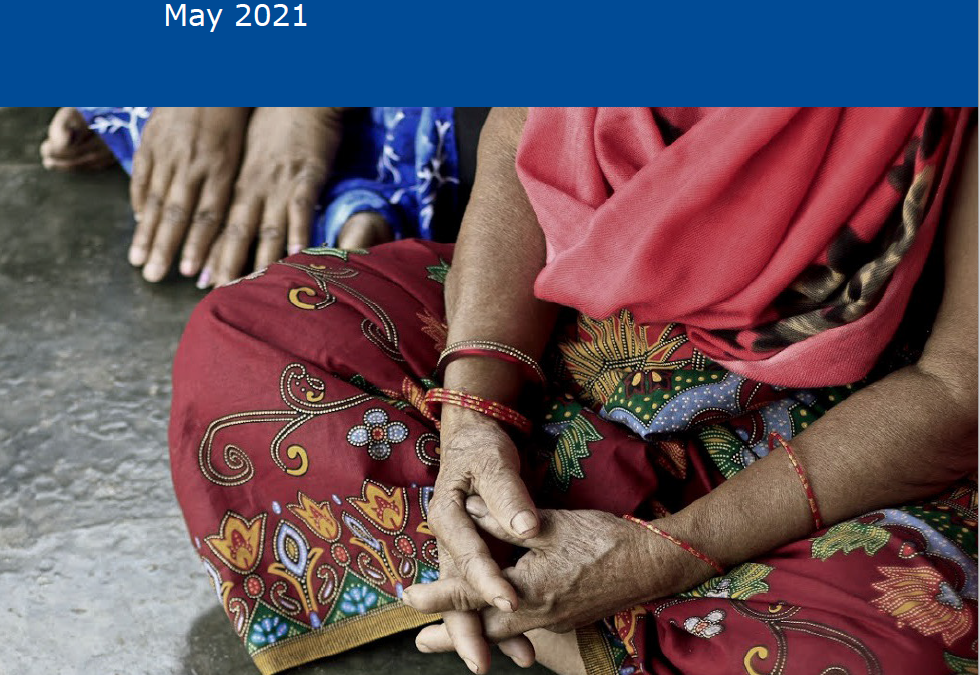
May 14, 2021 | Advocacy, News, Publications
The ICJ launched a new briefing paper Nepal: Transitional Justice Mechanisms with Gender Perspective in a webinar held on 12 May 2021.
The discussion included the need to give practical effect to Nepal’s obligation under international law to ensure the right to an effective remedy to the victims, including women victims of sexual and gender-based violence during the country’s internal armed conflict (1996 – 2006). Participants focused in particular on the need to ensure that gender issues are incorporated in the transitional justice mechanism.
The Honourable Kalyan Shrestha, former Chief Justice of the Supreme Court of Nepal and ICJ Commissioner, stressed the importance of the role of the Supreme Court of Nepal in establishing landmark jurisprudence on transitional justice.
Justice Shrestha explained how despite the fact that the country had established a progressive Constitution and amended legislation to provide for equality, non-discrimination and access to justice, women victims and survivors of a decade long armed conflict continued to face real barriers to justice. These including short periods of statute of limitations preventing the filing rape and sexual violations cases and lack of support mechanisms for women, which compounded existing economic pressure and social obstacles.
Bandana Rana, Member of the UN Committee on the Elimination of Discrimination against Women (CEDAW), addressed the situation of sexual and gender – based violence against women in Nepal during the armed conflict. She said that Nepal was bound by clear international legal obligations, including under the CEDAW and other treaties. Yet the Nepali government has not taken effective measures to ensure access to justice and the right to an effective remedy to the victims of SGBV during the conflict.
Laxmi Pokharel, ICJ Legal Adviser, summarized the ICJ’s briefing paper on “Nepal: Transitional Justice Mechanisms with Gender Perspective”. The Paper’s major recommendations, to the Government of Nepal, are:
- Amend the Truth and Reconciliation Act (TRC) in line with the Supreme Court’s order and Nepal’s international obligations;
- Ensure participatory, consultative processes while amending the TRC Act;
- Ensure the participation of women at all levels of recruitment, including in the formation of the recommendation committee, in the appointment of Commissioners of both the TRC and the Commission on Investigation of Disappeared Persons (COID) and at all levels of staffing with a view to ultimately achieving gender parity;
- Provide gender-sensitive trainings to the Commissioners and staff of the Commissions in order to enhance their capacity to address gender issues in their operation;
- Take all necessary steps to amend the Criminal Code to remove the statutory limitation for filing incidents of rape and other sexual violence, including in relation to acts committed during the armed conflict, in order to ensure justice for all victims;
- Ensure that amnesties and mediation are not used to replace criminal responsibility for gross violations of human rights, including rape and other sexual violence.
- Incorporate a gender-responsive approach in all aspects of the Commissions’ work, including in the interpretation and application of the mandate of the Commissions, prosecution of perpetrators and reparation to the victims and survivors;
- Incorporate an approach in the Commissions’ work that does not restrict women’s experiences during the armed conflict only to bodily harm suffered, but also takes account of structural gender biases and its consequences during the period of a conflict;
- Design and implement gender-friendly procedures for investigation, including statement taking, victim and witness protection and other activities of the Commissions;
- Design and implement specific reparation policies to address the unique needs of women victims;
- Ensure that the gendered aspects of the armed conflict, including its causes and consequences are incorporated in the final report of the Commissions;
- Take effective measures to ensure the widest possible dissemination of the final report of the Commissions in order to ensure that the wider population is made aware of the truth, most especially in relation to women.
The webinar was jointly organized by ICJ in collaboration with the United Nation’s Office of the High Commissioner for Human Rights (OHCHR) and UN Women. This event was organized under the ‘Enhancing Access to Justice for Women in Asia and the Pacific’ project funded by the Swedish International Development Cooperation Agency (SIDA). Due to the COVID – 19 pandemic the webinar was conducted virtually and live broadcasted on Facebook. It was conducted in English language and simultaneous translation in Nepali language was also available.
Contact
Laxmi Pokharel, ICJ Legal Adviser – Nepal, email: laxmi.pokharel(a)icj.org
Download
Briefing paper on “Nepal: Transitional Justice Mechanisms with Gender Perspective” (full report in PDF)
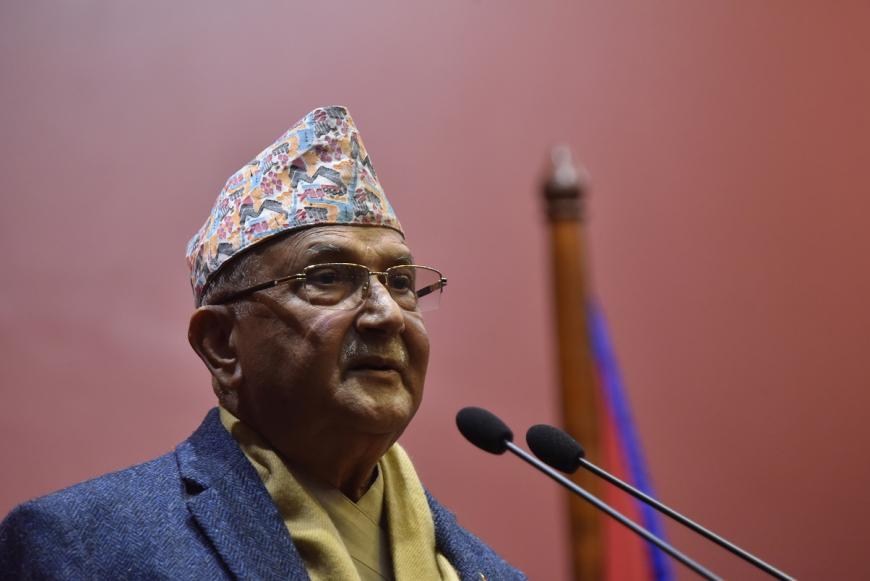
Mar 1, 2021 | News
The Nepal government should immediately withdraw an ordinance that undermines the independence of constitutional human rights bodies and rescind recent appointments that were made without consultation or parliamentary approval, the ICJ, Human Rights Watch, and Amnesty International said today.
These government actions undermine public trust and confidence in the integrity of the judiciary and other constitutional bodies such as the National Human Rights Commission and the Election Commission. The illegitimate appointments process is not simply an abstract irregularity but will lead to ineffective and weak implementation of critical mandates to protect human rights and other rule of law objectives, the groups said.
“The government’s actions are a severe dent in Nepal’s long struggle for a rule of law-based constitution, which was finally adopted in 2015 to guarantee human rights,” said Meenakshi Ganguly, South Asia director at Human Rights Watch. “It is sad to see some of the same politicians who drafted the Constitution playing fast and loose with the charter just a few years later.”
On December 15, 2020, President Bidya Bhandari endorsed an executive ordinance to amend the law governing the Constitutional Council, which makes appointments to the judiciary, the National Human Rights Commission (NHRC), and other constitutional bodies including the Election Commission. Under the Constitutional Council Act, five out of six members must be present, but under the ordinance a simple majority is sufficient. Because one seat on the council is vacant the quorum has been reduced to three.
The Constitutional Council met the same day with a newly reduced quorum. Three council members made 38 nominations to vacant positions on constitutional bodies at that meeting. They included all five seats on the National Human Rights Commission (NHRC), as well as nominations to bodies established to protect the rights of Dalits, women, and marginalized minorities, and to investigate corruption allegations.
Under the Constitution, appointments to these key institutions are supposed to be vetted by parliament. However, parliament was abruptly dissolved on December 20, five days after the appointments were announced. The nominees were sworn in on February 3, 2021, despite legal challenges in the Supreme Court to the constitutionality of the nominations and the dissolution of parliament. On February 23, the Supreme Court ruled that the dissolution of parliament was unconstitutional.
“In a context where repeated calls for institutional reforms have gone unheeded for decades, this move by the government further weakens the effectiveness of constitutional bodies that are supposed to be beacons of hope for victims of human rights violations and abuses,” said Mandira Sharma, senior international legal adviser at ICJ. “Independence, impartiality and legitimacy are preconditions for these bodies to effectively and efficiently deliver their mandates.”
Nepal’s Human Rights Commission, until recently, had played an important role in calling for accountability, including by releasing the names of people allegedly responsible for serious human rights violations such as torture and extra-judicial killing and recommending that they should be prosecuted. It is currently graded ‘A’ by the Global Alliance of National Human Rights Institutions (GANHRI) for its compliance with the Paris Principles, which were adopted by the UN General Assembly as the basic standards governing the mandate and operation of effective national human rights organizations. Core among the Paris Principles is that a national human rights institution must be independent and that its independence must be guaranteed by law. The organizations are concerned that following the new appointments the commission no longer meets those standards.
Among the other constitutional bodies to which new commissioners have been appointed in the same manner are the Election Commission and the Commission for the Investigation of Abuse of Authority (CIAA), Nepal’s anti-corruption agency. The Election Commission is seen by many people as playing an important role in efforts to achieve a society based on the rule of law and respect for human rights , while the CIAA has the authority to bring corruption cases against politicians.
Numerous appointments have also been made to commissions with mandates to protect the rights of people from vulnerable groups, including the National Women’s Commission, National Dalit Commission, and National Inclusion Commission. Many of these positions had lain vacant for years.
At least two Supreme Court petitions have been filed challenging the ordinance amending the Constitutional Council Act, and the new appointments to constitutional bodies. The chief justice, Cholendra Shumsher Rana, who sits on the constitutional bench of the Supreme Court, participated in the three-member Constitutional Council meeting that made the disputed nominations, and he administered the oath of office to the new commissioners on February 3.
“The doubts over the independence and integrity of the NHRC and other commissions will endanger the protection of human rights in Nepal,” said Dinushika Dissanayake, Deputy South Asia Director of Amnesty International. “The government must immediately reverse these appointments and start a new process in consultation with the civil society and rights holders in Nepal.”
The Accountability Watch Committee, a group of prominent human rights defenders in Nepal, issued a statement on February 12 announcing that they would not “cooperate and engage with the NHRC and other constitutional bodies until the Supreme Court’s decision.” Accountability Watch also called upon “the United Nations, diplomatic missions in Nepal and international organizations not to give legitimacy and cooperate with this appointment process which is currently sub-judice at the Supreme Court of Nepal.”
Foreign donor agencies that have previously engaged with the NHRC, and with the other commissions affected by this process, should stand clearly for a proper, open, and transparent appointments process that is based on international standards, Human Rights Watch, ICJ, and Amnesty International said.
Download the statement in English and Nepali.
Contact
In London, Meenakshi Ganguly (English, Bengali, Hindi): gangulm(a)hrw.org
In Colombo, Dinushika Dissanayake (English): dinushika.d(a)amnesty.org
In Kathmandu, Mandira Sharma (English, Nepali): mandira.sharma(a)icj.org
